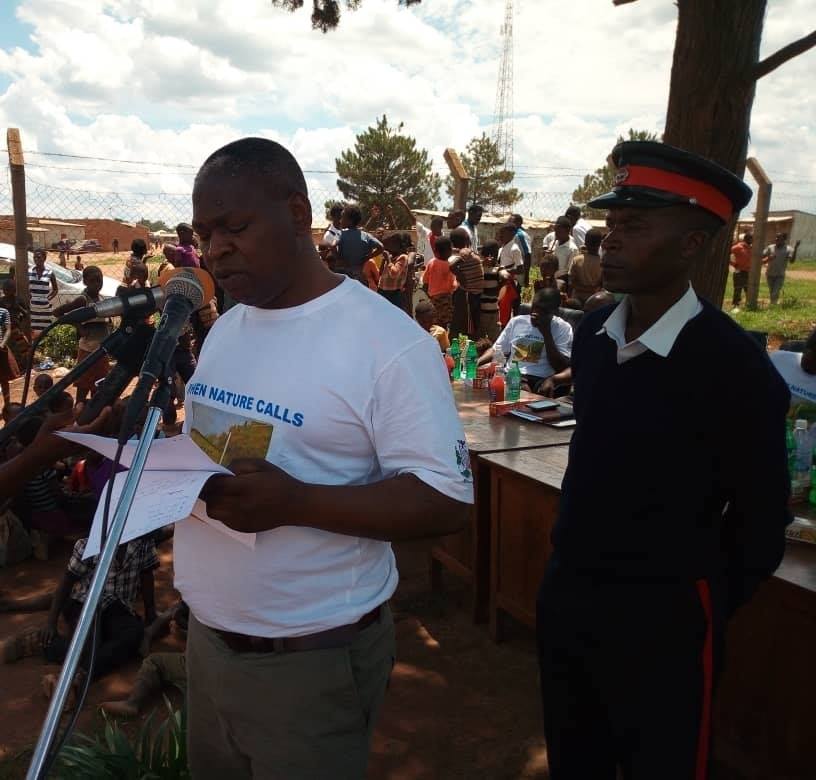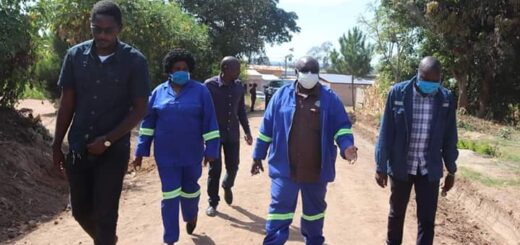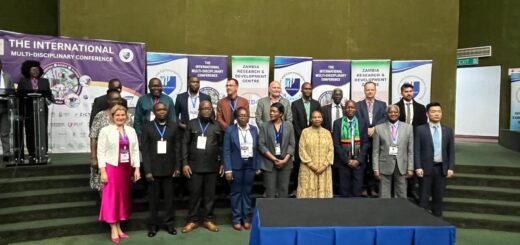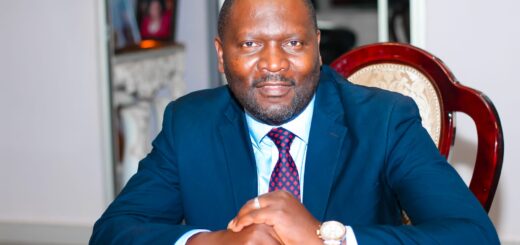How Zambia is greening its way out of poverty
Notice: Undefined index: catFilterList in /home/zambi/public_html/wp-content/plugins/wp-likes/api.php on line 243
How Zambia is greening its way out of poverty
By International Labour Organisation (ILO)
Situated in south-central Africa and bordering eight countries, peaceful and stable Zambia is approximately three times the size of the UK. Endowed with natural resources such as copper and hydropower, it ranks among the top 10 fastest growing economies in Africa.
Growth, however, has not had much positive impact for the majority of Zambian people who are still living below the poverty line, often surviving on less than U$ 1.25 per day. Additionally, growth industries such as mining and construction sectors have taken their toll on the environment (through land degradation, energy consumption and pollution).
Faced with unemployment – especially among women and youth, high levels of inequality and poverty, as well as a housing backlog and a number of environmental challenges, the government of Zambia has launched a Green Jobs Programme that promotes green technologies in the construction sector. As the world discusses actions to mitigate climate change at the COP 21 in Paris, beneficiaries and stakeholders of the Programme explained to ILO News the impact that green jobs can have on Zambia’s future and its people.
Building green, boosting jobs, improving lives
“By greening the economy, the issue of poverty can be sorted out.”
Dr. Albert Malama, Dean of the Built Environment School – Copperbelt University
Video story
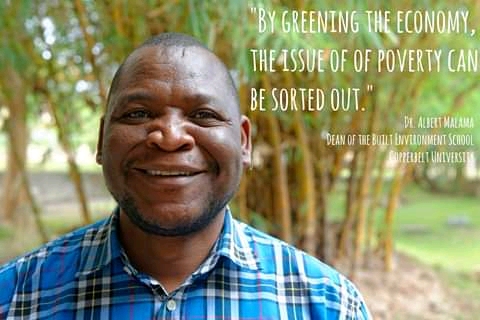
“By greening the economy, the issue of poverty can be sorted out.” Dr. Albert Malama, Dean of the Built Environment School – Copperbelt University
The ABC of building green
A five point checklist on how to build green
The change makers
© Nelson Kapikila is 27 years old and he’s a brick layer. He recently learned to build houses with hydroform bricks. “I can get a new job with the skills I learned here. And if I get some students, I can train them.”
© Mabel Nmomba is 30 years old, father of two kids. He started to work in house building three years ago. It’s the first time he uses interlocking bricks. “Considering what’ve done here, it can help me finding more work in the future and provide for my family.”
© Shemana Logan is 51 years old and has six children. He owns a farm and is building a guest house. He decided to apply green building technologies for his company’s projects. “Using green methods is affordable and it protects the environment around the farm. It’s a huge benefit.”
© Chimuka Nyanga is the Vice Chair of Zambia Green Jobs Programme steering committee. “It’s the first time that we saw other stakholders coming on board, not just the ministry of labour. We saw the Department of housing, the Department in charge of the environment taking part. And now we’re able to see the bigger picture as one. So this model can easily be replicated.”
© Tapera Muzira is the Chief Technical Advisor of the Green Jobs Programme in Zambia. “We have an opportunity to contribute to climate change mitigation while creating decent jobs and improving the lives of thousands of households, there’s a high level of market uptake which allows financial sustainability of the model, so yes,it’s really helping people out of poverty.”
Focus on women: The renewable power of green skills
“You may not appreciate the power of light until you are in darkness. For poor urban and rural households, having access to light is life changing – enabling children to study, helping enterprises to operate more business hours, combating crime and so forth.”
Tapera Muzira/ILO Chief Technical Advisor, Zambia Green Jobs Programme
For the women in the Kalulushi compound in the Copperbelt Province, building their own houses with green technologies wasn’t enough. Like most people in Zambia’s rural areas, they are off the grid. Without electricity, families must either spend hours in the dark or use dangerous, expensive alternatives such as kerosene, candles and charcoal. As part of the Zambia Green Jobs Programme, Emmery Matongo, Georgina Kunda and a few others were trained in solar panel assembly and installation. Not only this changed the daily lives of all villagers, it also opened new livelihood prospects for women.
Video story
A Greening momentum
As the knowledge on the benefits of green building technologies is spreading, society mindset towards sustainable development is changing too. Hear the voices of workers, students and employers explaining the benefits of a green path to development.
“ Among my friends and my family I’ve noticed there’s a need and a change to go green.”
Yetambuyu Imasiku, 22 years old, Student in urban and regional planning – Copperbelt University
The Zambia Green Jobs Programme – a four-year partnership between the Zambian Government and a team of United Nations agencies led by the ILO, and funded by Finland – promotes the development of sustainable enterprises by boosting competitiveness and business growth thanks to green technologies. It works with local micro, small and medium enterprises (MSMEs) and partners with multinational companies that are investing in Zambia.
“It is beneficial. It’s good for environment protection and it’s affordable.”
Shemena Logan, SME Director SME
It uses the construction sector to shape a sustainable development model which:
promotes sustainable enterprises,
creates more and better jobs,
protects people
preserves the quality of the environment
5000 green jobs by 2017
“I upgraded my skills. It will be easier for me to find a job.”
Davies Bweupe, Construction Worker
By 2017, the Programme will create at least 5,000 decent green jobs – particularly for young people –, enhance the quality of at least 2,000 green jobs in MSMEs, and improve the incomes and livelihoods of at least 8,000 households.
More broadly, the Programme aims to:
Increase the appreciation among the Zambian public in general, and among the construction industry stakeholders in particular, of green technologies.
Refine the regulation that stimulates demand among private and public housing developers for environmentally friendly building materials, products and methods.
Enhance the capacity of MSMEs to effectively participate in the construction of eco-friendly buildings by using and delivering green products and services.
“We registered a company and we want to start making solar panels on a large scale. We are going to have jobs making solar panels. This will help us escape from poverty.”
Emmery Matongo, mother of seven, Construction and solar panel trainee
This is in line with Zambia’s global commitments to the Sustainable Development Goals (SDGs), especially Goal 8 on economic growth and jobs, and on climate change mitigation and adaptation.
“We have to transform this knowledge into other SMEs and other communities.”
Munjunka Shadrick, Construction Site Manager
Following this first phase, the Ministry of Finance is conducting an Employment Projection and Green Jobs Assessment in key economic sectors – including energy, waste management, agriculture and tourism – to increase the scale and impact of inclusive green growth while diversifying the economy away from copper mining.
Why go green ?
“Greening will bring about disruption so we all want to be on the good side of this disruption.”
Chimuka Nyanga, Vice Chair of the steering Committee of the Zambia Green Jobs Programme
Housing backlog, youth unemployment, informality: Green jobs can help addressing these issues in Zambia.
Alexio Musindo, ILO Country office director for Zambia
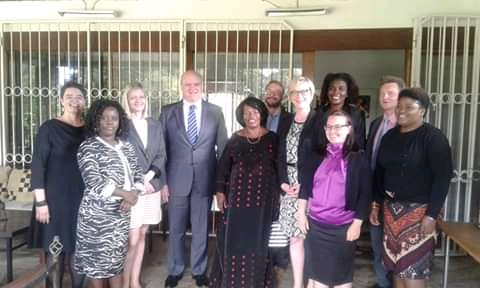
Timo Olkkonen, ambassador of Finland in Zambia
“Sustainable development should be economically, environmentally and socially sustainable.”
Timo Olkkonen, ambassador of Finland in Zambia

Timo Olkkonen, ambassador of Finland in Zambia with NGOCC Executive Director Engwase Mwale
More information
You can check the latest news of the programme on zambiagreenjobs.org or contact us at lusaka@ilo.org
ILO at COP21
ILO green jobs topic portal
© 1996-2020 International Labour Organization (ILO) | Copyright and permissions | Privacy policy | Fraud alert | Disclaimer
Skip to top
HomeAbout the ILONewsroomMeetings and eventsPublicationsResearchLabour standardsStatistics and databasesContact Us
Mission and impact ILO Centenary Declaration for the Future of Work, 2019 How the ILO works ILO Director-General Statements and speeches News and press releases Videos and photos In the media Former Directors-General Multilateral system The ILO and the G20 G20 summits ILO reports for the G20 The ILO and the G7 G7 France 2019 G7 Canada 2018 The ILO and the BRICS Brazil 2019 South Africa 2018 United Nations Reform Partnering for Development Programme and budget Results based management Strategic planning Global level programming in the ILO Country level programming in the ILO Reporting on results Funding Evaluation Performance management Efficiency savings Accountability and Transparency Committee on Accountability Ethics Office Areas of work Key documents Events and campaigns Annual Reports Evaluation Office Independent Oversight Advisory Committee Office of Internal Audit and Oversight About the Office Assurance audit Investigation and inspection Departments and offices Governance and Tripartism Department (GOVERNANCE) Labour Administration, Labour Inspection and Occupational Safety and Health Branch (LABADMIN/OSH) Better Work Branch (BETTERWORK) Fundamental Principles and Rights at Work Branch (FUNDAMENTALS) Social Dialogue and Tripartism Unit (DIALOGUE) Labour Law and Reform Unit (LABOURLAW) Financial Management Programme and Budget Regular budget income Financial reports, Statements and External Auditor’s reports History of the ILO Newsroom News Impact stories Statements and speeches Resources for journalists ILO in the media All ILO Newsroom content Multimedia Videos ILO TV and radio facilities Audio Maps and charts Employment opportunities Procurement



